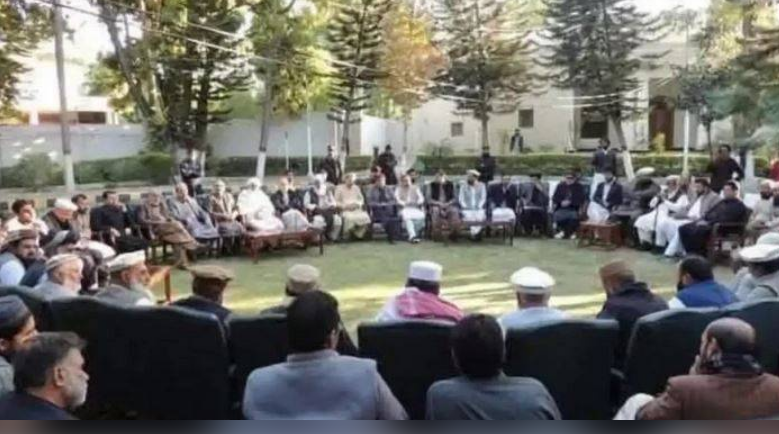Kohat (Web Desk): A landmark development for peace in Kurram was achieved on Wednesday with the successful conclusion of a Grand Jirga held in Khyber Pakhtunkhwa’s (KP) Kohat district, where representatives from the warring factions signed a historic peace agreement, marking a critical step toward restoring stability in the region.
Confirming the development, KP government spokesperson Barrister Muhammad Ali Saif said that one of the parties had signed the agreement a few days ago, while the second party finalised the deal today.
The peace accord, which calls for the surrender of weapons and the dismantling of private bunkers, is seen as a pivotal move toward ending years of unrest in Kurram.
Barrister Saif stated that the agreement would usher in a "new era of peace and development" for the district, with authorities vowing to restore security and tranquility to the once-volatile region.
The three-week-long Jirga, which concluded earlier on Wednesday, was overseen by Kohat Division Commissioner Moatasim Billah Shah.
The agreement represents a commitment to mutual cooperation between the conflicting parties, the government, and local administration to ensure long-term peace in Kurram. As part of the accord, both sides have agreed to dismantle their bunkers and hand over their weapons to the provincial government.
The provincial government has also pledged to open the roads to Kurram once the region has been stabilised.
In a proactive step, the government plans to establish a special security force of 399 personnel to safeguard key routes leading to Kurram. This force will be tasked with maintaining security in the area.
The formal announcement of the Kurram Peace Agreement is scheduled to take place at the Governor House in Peshawar.
Both parties are bound by the decisions made during the meetings of the Apex Committee, which helped facilitate the peace talks.
According to sources, while one party had already signed the agreement, the second party had requested additional time for consultation, ultimately signing today (Wednesday).
During the Jirga, it was decided that the terms of the peace deal, including the dismantling of bunkers and the surrender of weapons, would be implemented within a month, with a deadline set for February 1. The process will be supervised by the administration to ensure compliance.
A day earlier, the KP Assembly also debated the need for a military operation, but it was agreed that both parties would voluntarily surrender their weapons, eliminating the need for forceful intervention.
If the parties fail to comply with the agreement, road closures to Kurram will remain in place.
For now, the provincial government has maintained a helicopter service to deliver essential supplies, including food and medical aid. Once peace is firmly established, all roads leading to Kurram will be reopened.
The deadlock that had previously delayed the peace agreement, had been marked by protests across the country, especially in Karachi, where road blockages and traffic jams had disrupted daily life.
The protests were largely fueled by the closure of vital routes, including the Parachinar-Peshawar Main Road, which had been shut for over two months, halting supplies to Upper Kurram.
Kurram, a district bordering Afghanistan with a population exceeding 600,000, has long struggled with sectarian violence. Recently, tensions have reached new heights, with clashes since July resulting in over 200 fatalities. This ongoing conflict has deepened the region's humanitarian crisis.
This disruption has caused widespread suffering, with reports suggesting that more than 100 children may have died due to the lack of medicine.
However, KP government spokesperson Barrister Saif has refuted these claims.
Moreover, in response to the ongoing hardships, protests erupted in multiple locations. A sit-in was held at the Parachinar Press Club continues, while Karachi has seen demonstrations for nine consecutive days.
In Bagan, located in the southern part of Kurram, residents recently gathered to protest the damage to local homes and businesses.
The protesters demanded the reopening of vital transportation routes and increased aid for those affected by the ongoing violence.
However, local authorities have cited safety concerns as the reason for the roadblocks, referencing recent incidents of gunfire targeting vehicles and ongoing tribal conflicts in the region.


